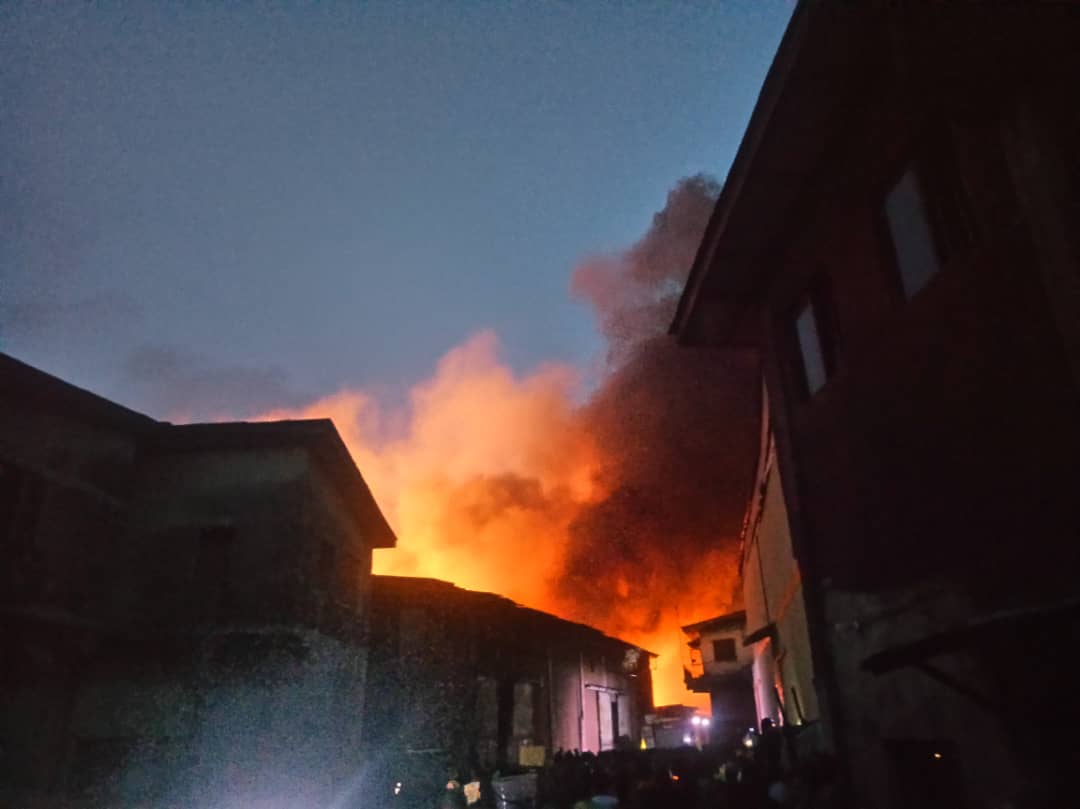BY MUKHTAR YA’U MADOBI
Now that the dry season is fast approaching, fire outbreaks constitute one of the calamities common at this period of the year. This is as a result of the harmattan, which is associated with dryness and wind; the harmattan haze with extremely dry dusty wind blows from the Sahara toward the western coast of Africa.
This mostly happens from November throughout March where quite a lot of fire outbreaks are recorded since there is dry wind, which makes it easy for the fire to spread at the slightest ignition.
Fire incidents also occur occasionally as a result of explosions mostly caused by fuel-laden trucks. Recently, not less than sixteen persons were confirmed dead due to a fire disaster following the explosion of a surface kerosene tank at Kubwa satellite town in the Bwari area council of the federal capital territory, Abuja. Apart from that, several fire outbreaks happened in Nigeria within the year with many lives and properties worth billions of naira lost.
Advertisement
In January, a section of Sokoto central market in Sokoto state was gutted by fire believed to have emanated from a power generating set. In October, a tanker fire in Onitsha led to the destruction of three caterpillars and over 30 vehicles. In the same month, a popular Santana market in Benin was also razed by fire and the Federal Inland Revenue Service headquarters in Abuja was similarly gutted by fire.
Also in November, a lot of cases have happened some of which include; destruction of Maiduguri’s Kasuwar Jago, GSM market, a high-rise building in Balogun Market, Lagos Island, some buildings in Ebute-Metta, Lagos Mainland LGA, meanwhile another diesel tanker also exploded at Ayobo, Abesan Estate, Alimosho local government area of Lagos state. The cases are too numerous to mention and they occur 0ften. The incessant fire outbreak in the country has led to destruction of lives and properties; just as many victims are still counting their losses.
Most of the fire incidents occurred in marketplaces, petrol/gas stations and sometimes residential buildings. Fire outbreaks are caused by several factors which could be either natural or human activities. The majority of market fires were found to have been caused by electric surges while very few were as a result of burning refuse close to the markets. Other factors include indiscriminate petrol storage, careless disposal of cigarette stubs, adulterated fuel, illegal connection, substandard cables etc.
Advertisement
Also, a good number of fire incidents happen at night causing late intervention. Data also show that some traders lost their lives to the infernos while some others sustained injuries while trying to salvage their goods. Experts have also identified population influx and urbanisation without commensurate improvement and expansion in public infrastructure, poor safety culture, as well as a wide gap in skills, knowledge, security risk management and mitigation as part of the causes of incessant fire incidents in the country.
Statistical reports from the Federal Fire Service indicate that between 2020 and 2021, a total of 4,541 calls were made to the agency nationwide and 378 rescue emergencies were recorded.
Hardly a month passes by without reported case(s) of fire incidents, especially in public places such as markets. Experts say this portends huge financial damage to the economy by worsening the nation’s poverty indices. Media reports indicate that between 2019 and 2021, Nigeria experienced severe fire incidents, leading to 79 deaths out of 68 fires recorded in 18 months. Thirty-one of these were market fires and the losses are still being counted.
According to Nigeria’s National Security Strategy 2019, a document produced by the Office of the National Security Adviser (ONSA), retired major-general Babagana Monguno, it was boldly stated that “in the event of national disasters, National Emergency Management Agency (NEMA) is empowered to provide both strategic and operational leadership, guidance and coordination in all national disaster relief efforts”.
Advertisement
Sequel to that, NEMA as the lead disaster and emergency management agency, is taking the lead to sensitise state governments, federal and state agencies and organisations as well as individuals to do the needful on time in the event of averting national disasters including fire outbreaks.
In addition, NEMA should synergize with other stakeholders including various federal and states’ fire services, State Emergency Management Agency, Federal Road Safety Corps, Police, Red Cross Society, National Orientation Agency as well as safety/fire disaster mitigation community-based organisations, etc. in order to stem the ever-rising challenge.
This can be achieved through embarking on massive public awareness campaigns on the prevention of fires, evacuation tips in case of fire disasters and how to contact the fire service in an emergency situation. Media organisations also have a lot of roles to play by assisting NEMA in sensitising the people on ways to prevent fire outbreaks; leaving electrical appliances on after work and needless bush burning as part of their corporate social responsibility (CSR) to the community.
Moreover, gas stations, fuel depots and public and private buildings should ensure that they have fire extinguishers handy as first aid in case of any fire incident. All electrical appliances not in use should be switched off and removed from the sockets to prevent electrical sparks from a power surge.
Advertisement
Mukhtar sent this piece from Kano via [email protected]
Advertisement
Views expressed by contributors are strictly personal and not of TheCable.
Add a comment






